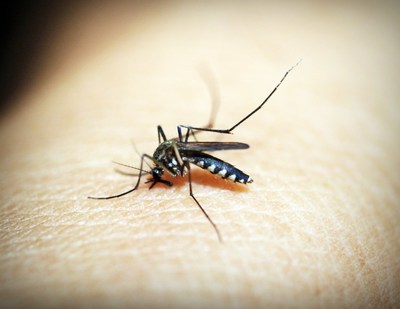|
Some of the most common questions I'm asked these days deal with the Zika Virus. For travelers, especially those who are looking to have children in the near future, there are legitimate concerns that need to be addressed. I always tell my clients to speak with their doctors if they are thinking about or are pregnant and considering traveling. As a travel agent, I don't want to put any of my clients in a situation that they will regret. My goal is to help book incredible vacations, not cause frustration! The CDC has an excellent website that lists a great deal of information on Zika. I'm by no means an expert. But here is a quick summary of information I've found. The Zika Virus: What is it?Quite simply, Zika is a virus. For most people, the symptoms aren't bad. You might have a rash, fever, headache, joint pain, or conjunctivitis (red eyes). A lot of people don't even know they have had it. Rarely do the symptoms escalate where you need to go to the hospital. If you think you may have Zika, it is important to see a doctor. They would be able to give you a test to confirm or deny that you have the virus. How can you become infected?The most common and well known way to become infected is through mosquito bites. The infection can be spread from mother to her fetus during pregnancy, as well as from one partner to another during sexual intercourse. Some of the biggest questions that are still unknown are how long Zika stays in the body after becoming infected. Where can you catch Zika?The risk to catch Zika from infected mosquitoes affects regions all around the globe. Even in the United States, parts of Florida and Texas are at risk. The areas that get brought up in the media and from my perspective as a travel agent are area in Mexico and the Caribbean. PregnancyThe most attention has probably been given to how Zika can affect pregnancy. Again, it is important that you speak with your doctor if you have any questions.. The CDC recommends waiting six months prior to trying to get pregnant after the male has traveled to an area affected with ZIka mosquitoes. If only the female has traveled to an area at risk, the length of time recommended to wait is only two months. If you happen to contract the Zika virus during pregnancy, or when you are still fighting the virus, there can be serious birth defects with your unborn baby. Most notably they are microcephaly (smaller than normal head size), developmental issues, and seizures. How to protect yourself from ZikaThere are a few easy things to help prevent catching the Zika virus. If you are in an area that is at risk, the primary thing you want to do is avoid mosquito bites. Use bug spray daily, and don't forget to reapply. If you are going to also be using sunscreen (which you should!), put the sunscreen on first, then bug spray. I know it can get mixed reviews at times, but I have always found bug spray with DEET to be more effective than bug spray without. Another tip is to wear long sleeves or pants. I know this can be difficult on a tropical vacation. Lastly, and maybe the most obvious way to protect yourself is to not go to an area where catching Zika is a risk. There is a whole world out there, and I can help you plan an incredible vacation in a Zika-free area. My wife Sandy and I went on an Alaskan cruise for a baby-moon, and had an amazing time! At the end of the day, as I've said numerous times in this post, it is important to speak with you doctor if you have concerns. I wanted to provide a summary, but this isn't meant as the be all end all for info on Zika. Contact us today to help plan your next vacation!
Share the knowledgeComments are closed.
|
From your
|
Connect[email protected]
(518) 573-6220 (608) 618-2897 Based in Madison, Wisconsin. Happy to connect wherever you are. |
Florida Seller of Travel Ref. No. ST15578
CST 2090937-50 Washington UBID No. 603189022 Iowa Registered Agency No. 1202 CST #2111810-40 Terms and Conditions
Managed by Voyager Websites |




 RSS Feed
RSS Feed